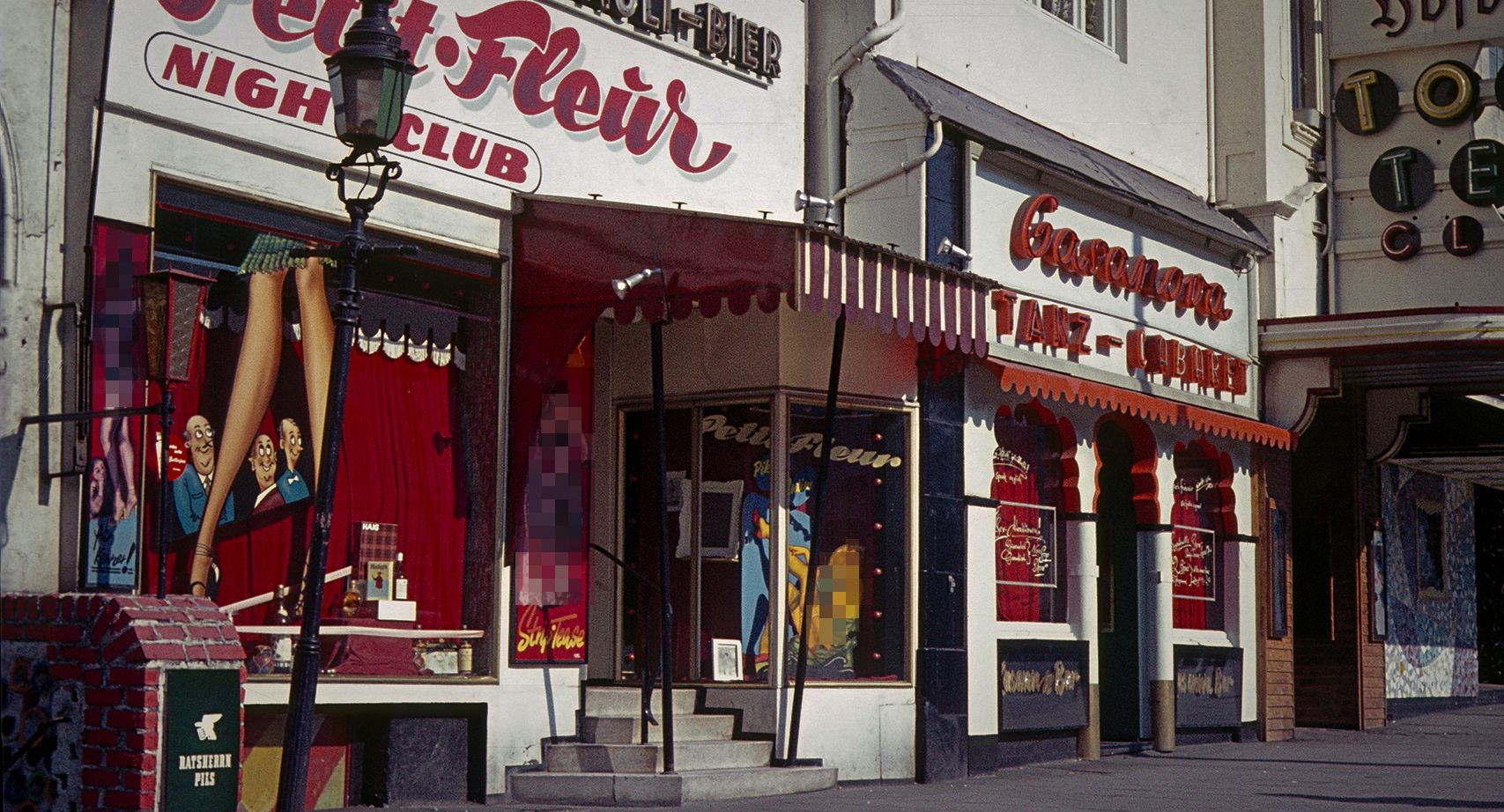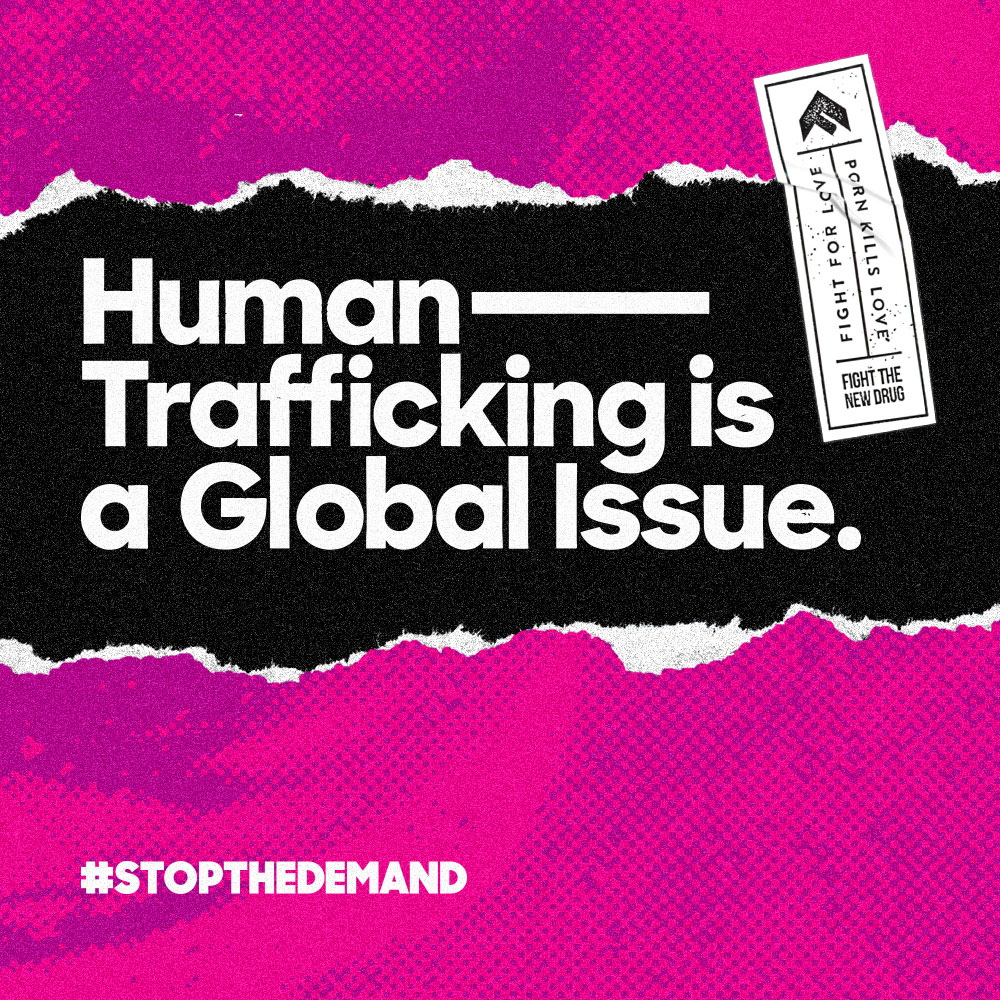Trigger warning:
Fight the New Drug is a non-religious and non-legislative awareness and education organization that provides access to resources that are helpful to those who need support. Including links and discussions about legislative matters does not constitute an endorsement by Fight the New Drug.
Selections of this article are originally published here. By Manuela Schon, an activist with an anti-prostitution organization called Abolition 2014 and co-founded Linke gegen Prostitution. She lives in Wiesbaden, Germany.
When German anti-prostitution advocates talk about the situation of prostitution in Germany, we hear the same responses, over and over: “You’ve got to be kidding!” or “How is this possible?” When we do presentations in other countries, people in the audience will often start to cry or ask for a break after 15 minutes to get some fresh air. The same presentations in Germany cause outrage as well, but we’ve noticed that people have become so accustomed to the situation, their emotional response is subdued. In fact, German men will often openly and proudly out themselves as sex buyers at abolitionist events. There is no shame in being a commercial sex buyer in Germany. This is an obvious and alarming sign that decades of legalized prostitution have shaped society.
It’s easy not to notice the harms of prostitution if we don’t look at them directly and, while all women are impacted by the realities of prostitution, most people who aren’t directly involved in this industry have limited knowledge as to what goes on in it. Not to mention that society has covered over the fact that trafficking is absolutely still happening, despite legalization.
We have to ask ourselves honestly what the implications of normalizing prostitution are (and trafficking along with it), and whether we have done enough to push back. It is not acceptable to simply say, “I am not personally affected by it and there are more important things to focus on.”
When we uncover serious violations of human rights, as is the case in prostitution and trafficking, it is our responsibility to do something about it. If we take an honest look at the situation in Germany, it is clear that action is sorely needed.
The German “Underground”
In Germany, prostitution has been legal for more than 100 years, even before to the passage of the 2001 prostitution law. In addition to legalizing pimping, when the Prostitution Act came into effect in 2002, it made it possible for prostituted people to become regular employees, subject to taxation and access to social benefits. Yet only 44 out of an estimated 400,000-1,000,000 prostituted people have chosen to register as prostitutes in order to access said benefits.
In Wiesbaden, my hometown and the capital of Hesse (population 280,000), officials have no idea how many people are prostituted within the city borders but guessed it could be 250 women, saying, “Wiesbaden is too bourgeois, so there isn’t a big demand.” But through my own research, I found 1,000 prostituted women (and transwomen) working in the city.
Related: Now You Can Access Fight the New Drug Resources in German
But most prostitution can be found in apartments all over the city, which are allowed even in the areas where brothels are prohibited. There are also porn theaters where men can find prostituted women, “tea clubs” (which mainly serve Turkish and Arab men and have mainly Bulgarian and Romanian women working there), your regular escorts, and, of course, online prostitution. Most people are surprised to learn that micro-brothels exist right in their own neighborhood, because they lack the visibility of mega-brothels.
Then there’s the organized crime factor. Organized crime groups like the Hells Angels, Mongols, Bandidos, United Tribuns, etc. control prostitution and red light districts in various German cities. Hamburg and Frankfurt, for example, are in the hands of the Hells Angels, whereas the United Tribuns control prostitution in Stuttgart and Villingen-Schwenningen. Despite that reality, popular discourse around legalization tends to focus on women’s “free choice” instead of the heavy involvement of organized crime in the industry. Shouldn’t we be talking about the way in which prostitution in Germany is “underground?”

Locations where prostitution is known to take place in Wiesbaden.
Prostitution in the Educational System
Pro Familia is an organization that advises schools in their sex education materials. Among the material they recommended for teenagers is a book which loosely translates to “Sexual Pedagogy of Diversity”. This text includes suggestions and material for projects in which students are asked to name sex positions and to “modernize a brothel.” In small groups they are to discuss what “services” these “pleasure houses” should offer. Those who protested this kind of content being introduced into curriculum were accused of being “reactionary,” “conservative,” and “prudish.”
Related: Denmark Might Start Showing Porn In Public Schools
The normalization of prostitution in Germany, even among school-aged children, has lead to young men celebrating their high school graduation (called “Abitur”) together in brothels. Here, it’s no big deal that boys as young as 16 go to their local prostitution apartment to buy sex (something I see on a regular basis in my own neighborhood).
“Greed is Hot”
“Geiz ist geil” is a phrase commonly used in German ads and marketing campaigns, meaning, “greed is hot” or “greed is good.” Unsurprisingly, this idea — that the public should try to get everything as cheaply as possible — is transferred to the prostitution market as well. Women are sold as products, so, as products, they should be as cheap as possible. Brothel owners fall over themselves trying to offer the best bargain:


“Flat-rate brothels” offer all-inclusive deals similar to all-you-can-eat buffets.” In some cases, snacks and drinks are included in the deal. A flat-rate brothel chain made headlines when, on its opening day in 2009, 1,700 men lined up to get in. The long lineups outside women’s rooms lasted until closing time when many of the women collapsed from exhaustion, pain, injuries, and infections. It was shut down a year later for human trafficking.
Related: The Inseparable Link Between Porn And Human Trafficking
Flat-rate brothels are very common in Germany, as well as “tabuslos,” meaning “no taboos.” In practice, this translates to “everything without any protection.” As a result, STDs are on the rise in Germany (HIV rates have gone up after several years of stagnation), and it’s common for married men to infect their wives.
Competing for customers means that brothel chains offer gambling games with the chance of winning a free hookup. A brothel in Berlin gives customers a “collection card” like coffee shops do — five visits will grant you a 50% rebate, and your 11th visit is free.
In Germany, both convenience and frugality are key, and patrons can go to parking garages for drive-in sex, or visit stalls called “Verrichtungsbox” (“getting things done” boxes). They can now even order women the way one would order a pizza thanks to a mobile app produced last year.


Prostitution and Pornography Connect in Germany
A German film and entertainment company hosts and films gang bang parties with different themes, which they then sell to the public as pornography. Each participant pays 35 Euros, which includes drinks and food. The women provided as “entertainment” are all prostituted women. Condom-use is explicitly banned, though face masks are provided in order to protect the identity of the commercial sex buyer. The men must either bring a recent HIV-test (no older than two weeks) or have a quick test done on the premises. Some examples of these titles include: “Teenie Tina, Six Months Pregnant,” “The Big Grub,” or “Sloshing Party” (where women are plied with alcohol so they’ll be more compliant).
The company publishes pictures of the aftermath, which always show women with glazed eyes and irritated bodies. These images are contrasted with celebratory language, implying the women had great fun. In one woman’s case, a description on the site of her injuries was appraising, as if her painful and swollen body indicated that a good time was had.
How is that sexy, we ask? How is this remotely considered healthy?
Prostitution Ads Are Everywhere
If you go to Cologne by train, the first thing you’ll see when you leave the station are taxis featuring ads for the Pascha brothel.

In Berlin you might see a bus advertising for the Artemis brothel.

On the highway you might pass a truck that is decorated like this:

In restricted areas where advertising is forbidden, moving advertising pillars are driven through the cities, or trucks, vans, and trolleys are parked until enough residents complain, and they are moved to the next street. But you can’t escape the ads for long—they’re literally everywhere.
Prostitution Lobbyism in Pop Culture
In Germany, there are a number of TV shows that promote pornography and prostitution. A German channel airs reality shows that promote a positive view of prostitution, showing prostituted women talking about how much they love what they do and how exciting everything is.
Related: 10 Popular Ex-Porn Stars Share The Raw Reality Behind Their Most Popular Scenes
In 2010, this channel aired a program about a brothel which caters to pedophile sexual fantasies. Women that look and dress like minors are available in rooms called “The Princess Room” or “The Classroom.” A video on YouTube shows the fifth anniversary of this brothel, attended by many German celebrities.

How messed up is this?
In 2011, a reality show called The Wollersheims followed brothel owner Bert Wollersheim and “the new love of Germany’s most iconic brothel boss.” In the ’90s, Wollersheim was charged with human trafficking. A prostituted woman had been kidnapped (on his instruction), because she didn’t want to work in one of his brothels anymore and her new boyfriend (or pimp) wasn’t willing to pay a transfer fee.
Michael Beretin, manager of the famous Paradise brothel chain, is involved in two reality TV programs featuring German brothels. In Redlight Experts, brothels can apply to be tested for quality — of the women, the atmosphere, the sanitation — and through the show, they can acquire a quality seal. On another show, the “Bordell S.O.S.” team jazzes up brothels in order to help them bring in more cash.
In a revealing UK Channel 4 documentary called The Mega Brothel, Beretin says to the camera, “Just look at these soulless, [messed up women]. Some time ago women did this job with passion, but those days are over.” Beretin was arrested in 2015 on suspicion of human trafficking, forced prostitution, and fraud. In spite of that, German TV channels continue to air the show on occasion.

Locations of murders and attempted murders of prostituted women in Germany.
Related: How To Spot (And Rescue) A Sex Trafficking Victim
We have a long way to go, a bitter fight ahead, and German anti-prostitution advocates can’t do it alone. We need third parties to say, “Are you Germans completely nuts?” Documentaries and reports have begun to tell the truth about the situation in Germany. Even “sex work” lobbyists are saying the “German model” isn’t desirable. It’s time for Germans to start feeling ashamed, not proud, of their situation.
Your Support Matters Now More Than Ever
Most kids today are exposed to porn by the age of 12. By the time they’re teenagers, 75% of boys and 70% of girls have already viewed itRobb, M.B., & Mann, S. (2023). Teens and pornography. San Francisco, CA: Common Sense.Copy —often before they’ve had a single healthy conversation about it.
Even more concerning: over half of boys and nearly 40% of girls believe porn is a realistic depiction of sexMartellozzo, E., Monaghan, A., Adler, J. R., Davidson, J., Leyva, R., & Horvath, M. A. H. (2016). “I wasn’t sure it was normal to watch it”: A quantitative and qualitative examination of the impact of online pornography on the values, attitudes, beliefs and behaviours of children and young people. Middlesex University, NSPCC, & Office of the Children’s Commissioner.Copy . And among teens who have seen porn, more than 79% of teens use it to learn how to have sexRobb, M.B., & Mann, S. (2023). Teens and pornography. San Francisco, CA: Common Sense.Copy . That means millions of young people are getting sex ed from violent, degrading content, which becomes their baseline understanding of intimacy. Out of the most popular porn, 33%-88% of videos contain physical aggression and nonconsensual violence-related themesFritz, N., Malic, V., Paul, B., & Zhou, Y. (2020). A descriptive analysis of the types, targets, and relative frequency of aggression in mainstream pornography. Archives of Sexual Behavior, 49(8), 3041-3053. doi:10.1007/s10508-020-01773-0Copy Bridges et al., 2010, “Aggression and Sexual Behavior in Best-Selling Pornography Videos: A Content Analysis,” Violence Against Women.Copy .
From increasing rates of loneliness, depression, and self-doubt, to distorted views of sex, reduced relationship satisfaction, and riskier sexual behavior among teens, porn is impacting individuals, relationships, and society worldwideFight the New Drug. (2024, May). Get the Facts (Series of web articles). Fight the New Drug.Copy .
This is why Fight the New Drug exists—but we can’t do it without you.
Your donation directly fuels the creation of new educational resources, including our awareness-raising videos, podcasts, research-driven articles, engaging school presentations, and digital tools that reach youth where they are: online and in school. It equips individuals, parents, educators, and youth with trustworthy resources to start the conversation.
Will you join us? We’re grateful for whatever you can give—but a recurring donation makes the biggest difference. Every dollar directly supports our vital work, and every individual we reach decreases sexual exploitation. Let’s fight for real love:



